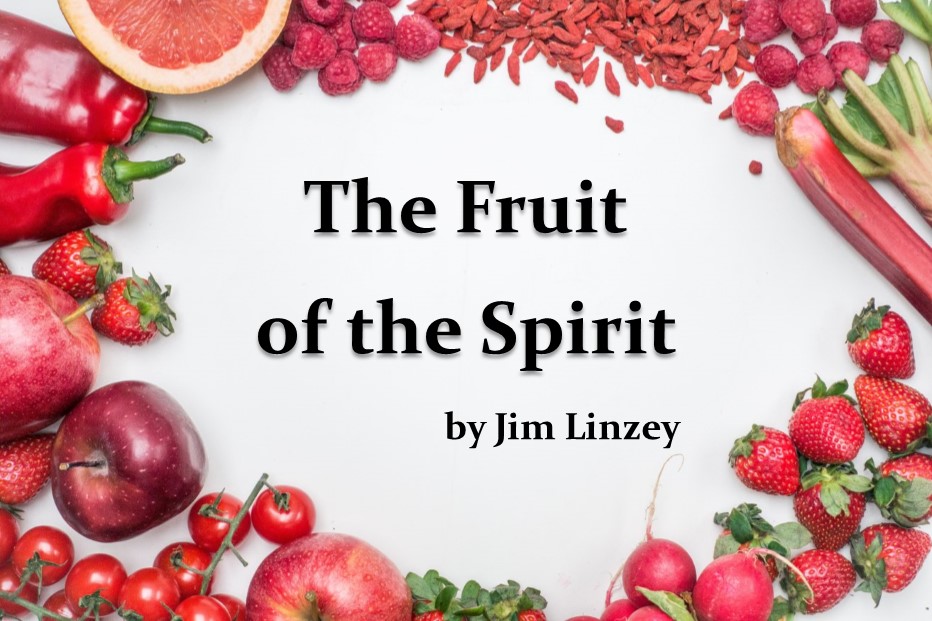The Fruit of the Spirit

“But the fruit of the Spirit is love, joy, peace, patience, gentleness, goodness, faith, meekness, and self-control … If we live in the Spirit, let us also walk in the Spirit” (Gal. 5:22-25, MEV).
 The fruit of the Spirit identifies the Spirit-filled believer. Just as speaking with other tongues confirms the baptism in the Holy Spirit as the Spirit gives utterance (Acts 2:4), in the same way, the continuing evidence of the Spirit-filled life is the development of Christlike character. A Christian is a person whose life and character conform to Christ’s teachings. True Christianity is more than a profession of faith. It alters a person’s life-style because the character of Christ is developed in the believer through the presence and power of the Holy Spirit. The fruit of the Spirit testifies of spiritual maturity.
The fruit of the Spirit identifies the Spirit-filled believer. Just as speaking with other tongues confirms the baptism in the Holy Spirit as the Spirit gives utterance (Acts 2:4), in the same way, the continuing evidence of the Spirit-filled life is the development of Christlike character. A Christian is a person whose life and character conform to Christ’s teachings. True Christianity is more than a profession of faith. It alters a person’s life-style because the character of Christ is developed in the believer through the presence and power of the Holy Spirit. The fruit of the Spirit testifies of spiritual maturity.
 The fruit of the Spirit in the believer is contrasted to the “works of the flesh” in the unbeliever (Gal. 5:19-21). Through the Spirit-filled life, with the Holy Spirit working in us, we can transcend the fleshly nature and become Christlike. The fruit of the Spirit is utterly opposed in character to the works of the flesh. The carnal nature produces “works” which are sinful and base. Paul points out the plurality of works, always in conflict with one another for the mastery. However, the fruit of the Spirit points to unity—it is singular, not plural. The “fruit of the Spirit” is singular throughout the New Testament which is designed to emphasize the one source from which the fruit can come—even the Holy Spirit—and the unity which His presence produces. The “works of the flesh” are given in plural to indicate the disunity and destruction which sin brings into lives. The Spirit produces fruit in the believer.
The fruit of the Spirit in the believer is contrasted to the “works of the flesh” in the unbeliever (Gal. 5:19-21). Through the Spirit-filled life, with the Holy Spirit working in us, we can transcend the fleshly nature and become Christlike. The fruit of the Spirit is utterly opposed in character to the works of the flesh. The carnal nature produces “works” which are sinful and base. Paul points out the plurality of works, always in conflict with one another for the mastery. However, the fruit of the Spirit points to unity—it is singular, not plural. The “fruit of the Spirit” is singular throughout the New Testament which is designed to emphasize the one source from which the fruit can come—even the Holy Spirit—and the unity which His presence produces. The “works of the flesh” are given in plural to indicate the disunity and destruction which sin brings into lives. The Spirit produces fruit in the believer.
The fruit of the Spirit is just as supernatural as the gifts of the Spirit.
 Christian character begins with the new birth. Christ lives within, and therefore it becomes more natural for a believer to do the spiritual thing. However, fruit-bearing isn’t instantaneous. It is a growth process. The baptism in the Holy Spirit further cultivates the heart for the continued growth of the Spirit’s fruit. Since the development of Christian character is the work of the Holy Spirit, maturity should come more quickly within a Spirit-baptized believer.
Christian character begins with the new birth. Christ lives within, and therefore it becomes more natural for a believer to do the spiritual thing. However, fruit-bearing isn’t instantaneous. It is a growth process. The baptism in the Holy Spirit further cultivates the heart for the continued growth of the Spirit’s fruit. Since the development of Christian character is the work of the Holy Spirit, maturity should come more quickly within a Spirit-baptized believer.
The fruit of the Spirit is just as supernatural as the gifts of the Spirit. The fruit is the result of a new spiritual life from above; it does not come from self-imposed discipline. One can be highly moral and not have the fruit of the Spirit, but one cannot have the fruit of the Spirit and not be highly moral.
Category: Spirit, Winter 2018



